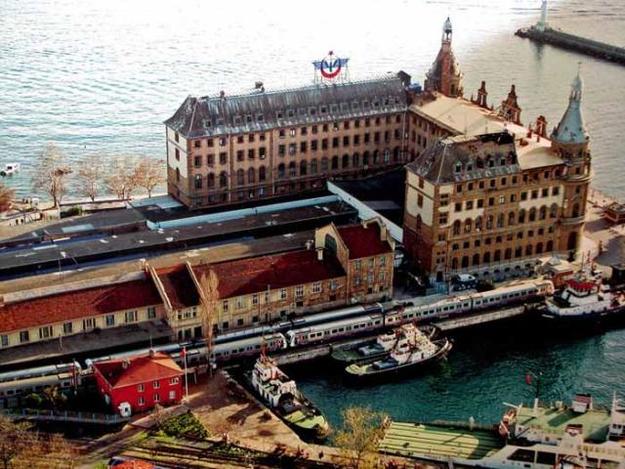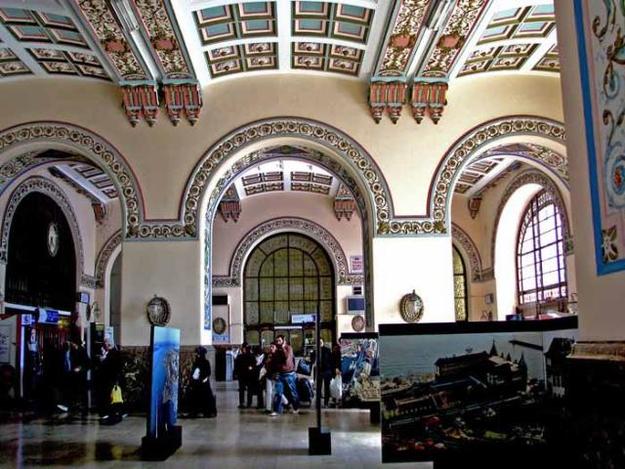Haydarpaşa Railway Station
2012 World Monuments Watch
For over a century, the historic Haydarpaşa Railway Station has stood as an iconic image on Istanbul’s skyline and as the symbolic gateway to the city. Built by the German-owned Anatolian-Baghdad Railway and designed by architects Otto Ritter and Helmuth Conu, the station was a terminus of the Istanbul-Medina-Damascus railway line and later for routes to Anatolia. Heavily damaged during World War I but rebuilt in its present configuration, Haydarpaşa witnessed the country’s transformation from the Ottoman Empire to the Turkish Republic. Generations share a nostalgic attachment to the building and all it represents. New transportation avenues will render the station obsolete, and there are plans to redevelop the building, which was recently damaged by fire, along with a large tract of adjacent rail yard. Improvements in transportation planning and infrastructure in many urban areas increasingly challenge the capacities and functionality of traditional stations and similar, large-scale historic structures. Their redevelopment presents important opportunities for protecting cultural resources while improving quality of life. There is strong community support for an adaptive reuse of Haydarpaşa Railway Station that will preserve public access and open space, as well as balance economic, environmental, and social concerns. Its redevelopment requires public engagement and transparency, and could serve as an important model for reinventing cultural heritage in the context of changing cities.
Since the Watch
In January 2012, Haydarpaşa Railway Station closed to allow for the construction of a high-speed rail line between Istanbul and Ankara. In August 2014, the Turkish Ministry of Culture and Tourism approved a plan for the modernization of the station, in order to serve as the terminal of the new rail line. September 2014



